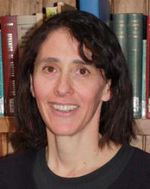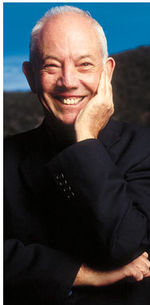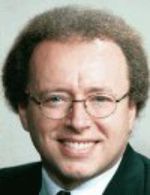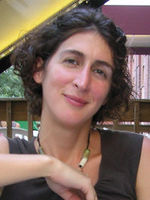SFI Short Course 2015 - Faculty 2015
From Santa Fe Institute Events Wiki
| Education Event Navigation |
Program Director

Melanie Mitchell, External Professor, Santa Fe Institute; Professor, Computer Science, Portland State University
Bio
Melanie Mitchell is Professor of Computer Science at Portland State University, and External Professor and Member of the Science Board at the Santa Fe Institute. She attended Brown University, where she majored in mathematics and did research in astronomy, and the University of Michigan, where she received a Ph.D. in computer science, Her dissertation, in collaboration with her advisor Douglas Hofstadter, was the development of Copycat, a computer program that makes analogies. She has held faculty or professional positions at the University of Michigan, the Santa Fe Institute, Los Alamos National Laboratory, the OGI School of Science and Engineering, and Portland State University. She is the author or editor of five books and over 70 scholarly papers in in the fields of artificial intelligence, cognitive science, and complex systems. Her most recent book, Complexity: A Guided Tour, published in 2009 by Oxford University Press, is the winner of the 2010 Phi Beta Kappa Science Book Award. It was also named by Amazon.com as one of the ten best science books of 2009, and was longlisted for the Royal Society's 2010 book prize.
Faculty (partial list)

W. Brian Arthur, External Professor, Santa Fe Institute; Visiting Researcher, Intelligent Systems Lab, PARC
Bio
W. Brian Arthur is an External Faculty Member at the Santa Fe Institute, IBM Faculty Fellow, and Visiting Researcher in the Intelligent Systems Lab at PARC (formerly Xerox Parc). From 1983 to 1996 he was Morrison Professor of Economics and Population Studies at Stanford University. He holds a Ph.D. from Berkeley in Operations Research, and has other degrees in economics, engineering and mathematics.
Arthur pioneered the modern study of positive feedbacks or increasing returns in the economy--in particular their role in magnifying small, random events in the economy. This work has gone on to become the basis of our understanding of the high-tech economy. He has recently published a new book: The Nature of Technology: What it Is and How it Evolves, "an elegant and powerful theory of technology's origins and evolution."He is also one of the pioneers of the science of complexity.
Arthur was the first director of the Economics Program at the Santa Fe Institute in New Mexico, and has served on SFI's Science Board and Board of Trustees. He is the recipient of the Schumpeter Prize in economics, the Lagrange Prize in complexity science, and two honorary doctorates.
Arthur is a frequent keynote speaker on such topics as: How exactly does innovation work and how can it be fostered? What is happening in the economy, and how should we rethink economics? How is the digital revolution playing out in the economy? How will US and European national competitiveness fare, given the rise of China and India?

Robert Axtell Department Chair and Co-Director of the Computational Public Policy Lab

Aaron Clauset, External Faculty, Santa Fe Institute; Assistant Professor of Computer Science, University of Colorado at Boulder

Mirta Galesic Professor, Santa Fe Institute; Cowan Chair in Human Social Dynamics, Santa Fe Institute
Bio
W. Brian Arthur is an External Faculty Member at the Santa Fe Institute, IBM Faculty Fellow, and Visiting Researcher in the Intelligent Systems Lab at PARC (formerly Xerox Parc). From 1983 to 1996 he was Morrison Professor of Economics and Population Studies at Stanford University. He holds a Ph.D. from Berkeley in Operations Research, and has other degrees in economics, engineering and mathematics.
Arthur pioneered the modern study of positive feedbacks or increasing returns in the economy--in particular their role in magnifying small, random events in the economy. This work has gone on to become the basis of our understanding of the high-tech economy. He has recently published a new book: The Nature of Technology: What it Is and How it Evolves, "an elegant and powerful theory of technology's origins and evolution."He is also one of the pioneers of the science of complexity.
Arthur was the first director of the Economics Program at the Santa Fe Institute in New Mexico, and has served on SFI's Science Board and Board of Trustees. He is the recipient of the Schumpeter Prize in economics, the Lagrange Prize in complexity science, and two honorary doctorates.
Arthur is a frequent keynote speaker on such topics as: How exactly does innovation work and how can it be fostered? What is happening in the economy, and how should we rethink economics? How is the digital revolution playing out in the economy? How will US and European national competitiveness fare, given the rise of China and India?
